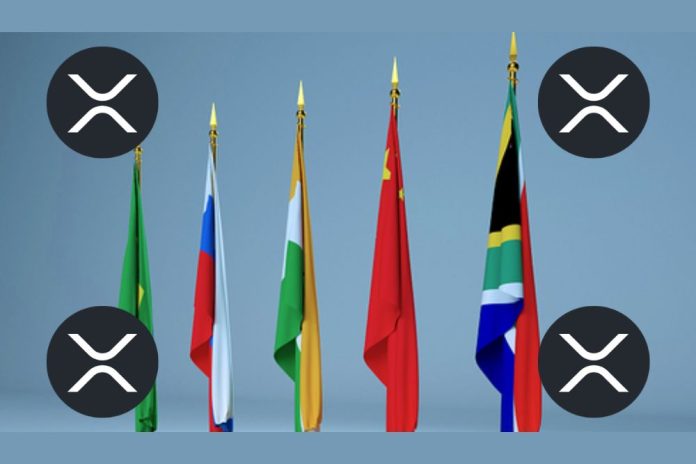The BRICS economic bloc (Brazil, Russia, India, China, and South Africa) is taking steps towards establishing a financial infrastructure independent of traditional systems. This includes the potential development of a separate payment network to facilitate cross-border transactions between member states.
Russia Confirms BRICS Payment System Plans
An XRP enthusiast Amelia recently shared a research paper, captioned with a short clip by Russian President Vladimir Putin to corroborate the report.
The report indicates that the BRICS nations are seriously considering creating an alternative currency system. The research suggests that Ripple’s XRP could be explored as a potential bridge currency for international settlements within the bloc.
This potential inclusion of XRP is not entirely unexpected. The Bank of Russia previously initiated a project investigating cross-border transfers, and Ripple’s payment network was reportedly a contender for the project’s foundation.
The paper reads in part:
“Based on the research results, it was concluded that the Ripple platform can be considered as the basis for starting work on creating a system of cross-border settlements, provided that the following organizational, legal and technical issues are resolved.”
Part of the resolution that involved XRP are:
- The use for XRP transfers or equivalents of fiat currencies issued by each participant.
- The development of a procedure for determining cross rates for the internal “currency” of Ripple – XRP (when deciding to use XRP in interstate settlements).
XRP’s well-known transaction speed and cost-effectiveness make it a potentially suitable solution for the BRICS bloc’s aspirations of revolutionizing its international payment landscape.
Potential Benefits of XRP for BRICS
Analysts believe that widespread adoption of XRP by BRICS could lead to a significant increase in its value. Crypto expert Robert Doyle (Crypto Sensei) has predicted a potential price surge to $10,000 per XRP if such a scenario unfolds.
There’s a consensus that BRICS nations stand to gain significant advantages from choosing XRP as an alternative to the US dollar for international transactions.
Additionally, Ripple boasts a continuously expanding network of partnerships with established financial institutions, which the BRICS nations could leverage to bolster their financial system.
XRP’s Growing Recognition and Potential ETF
These institutional partnerships serve as a testament to XRP’s expanding use cases and growing recognition on a global scale. In recent months, the cryptocurrency’s value has improved, particularly following a crucial court ruling in July 2023 by Judge Analisa Torres. The ruling clarified that XRP is not classified as a security under US law, which has opened doors for further exploration of its financial applications.
The recent approval of spot Bitcoin and Ethereum ETFs by the US Securities and Exchange Commission (SEC) has fueled discussions about the possibility of an XRP ETF. Ripple CEO Brad Garlinghouse expressed optimism in a recent interview, stating that the approval of Ethereum ETFs paves the way for the potential approval of an XRP ETF.
Ripple President Monica Long has also voiced strong support for the emergence of XRP ETFs, highlighting the current regulatory clarity surrounding XRP in the US as a key factor.
We are on twitter, follow us to connect with us :- @TimesTabloid1
— TimesTabloid (@TimesTabloid1) July 15, 2023
The BRICS nations’ pursuit of an independent financial system, coupled with XRP’s growing prominence, presents a fascinating scenario. While the exact role XRP might play remains to be seen, its potential benefits for the BRICS bloc and its overall market value are significant considerations.
As the situation unfolds, it will be intriguing to witness how this exploration by the BRICS nations influences the global financial landscape and the future trajectory of XRP.
Follow us on Twitter, Facebook, Telegram, and Google News



